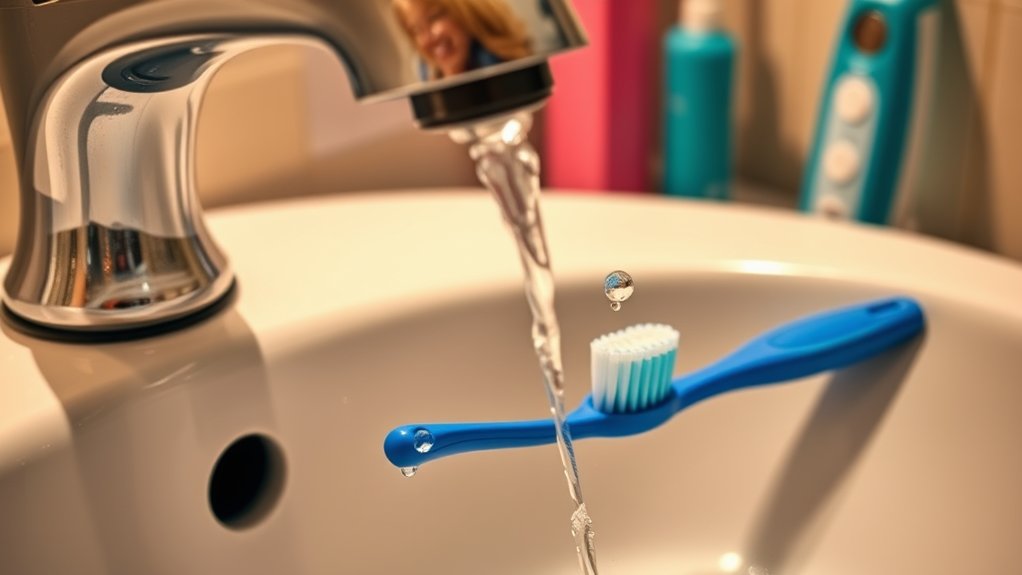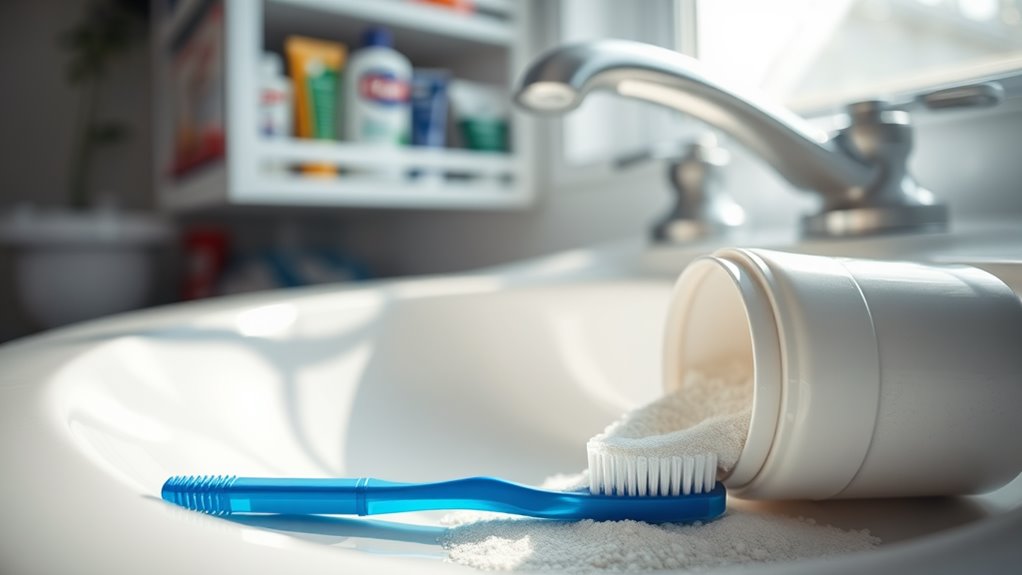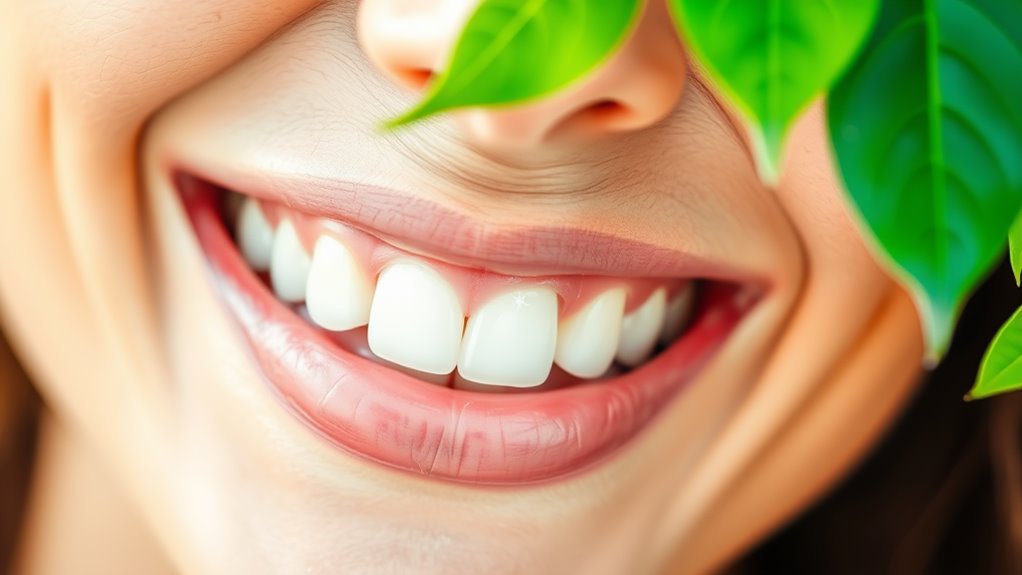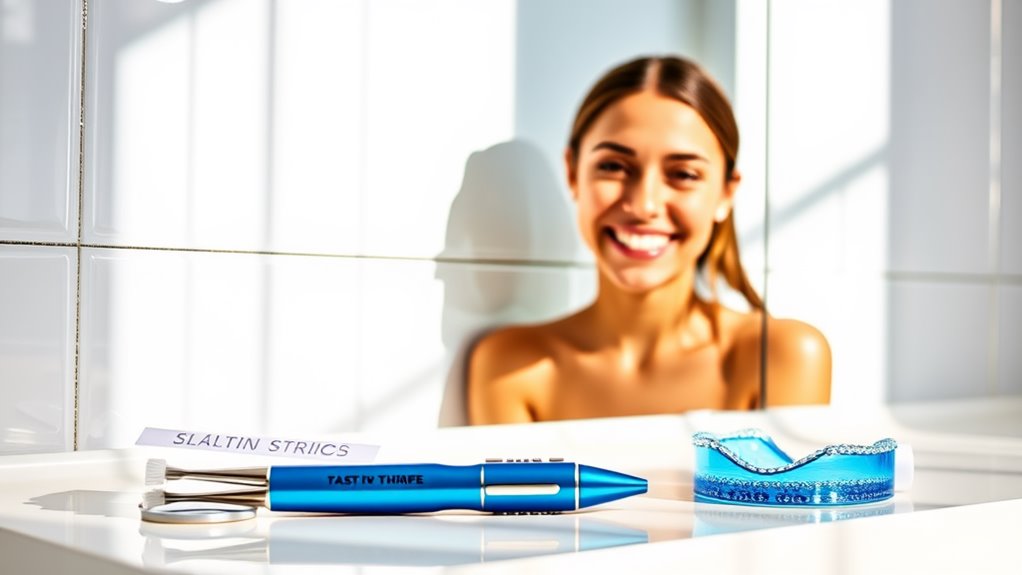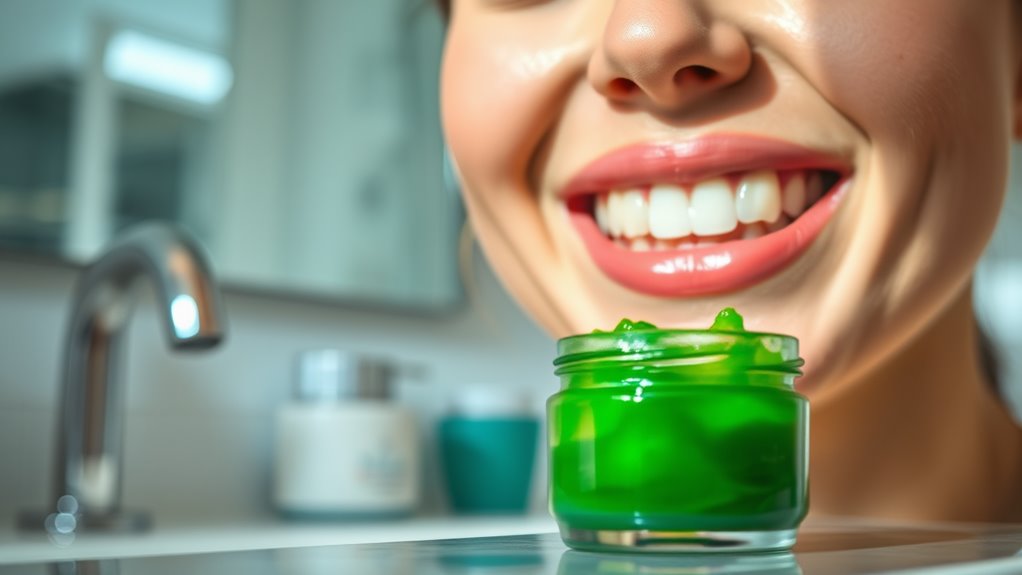Rinsing After Brushing- Good or Bad.
Have you ever wondered if rinsing after brushing your teeth is actually beneficial or harmful? While it might feel refreshing, rinsing can wash away the fluoride that strengthens your enamel and fights cavities. Understanding the implications of this practice is crucial for maintaining your oral health. What if skipping that rinse could lead to better long-term benefits for your teeth? There’s more to consider than just a minty mouthfeel.
Understanding Oral Hygiene Practices
Understanding oral hygiene practices is essential for maintaining healthy teeth and gums, as neglecting them can lead to significant dental issues.
One common misconception you might encounter are rinsing myths. Many believe that rinsing immediately after brushing removes fluoride, which is critical for strengthening enamel and preventing decay. In reality, rinsing too soon can wash away the benefits of your toothpaste. Additionally, waiting 30 minutes after brushing allows your saliva to aid in neutralizing acids for enamel recovery.
Instead, try to wait at least 30 minutes before rinsing. Focus on proper brushing techniques and regular dental visits to bolster your oral care routine. Making informed choices will empower you to achieve and maintain optimal oral health.
The Role of Fluoride in Toothpaste
Fluoride plays a crucial role in strengthening your teeth and helping prevent cavities.
When you use fluoride toothpaste, it takes time for your enamel to absorb the fluoride effectively, enhancing its protective benefits.
Understanding how fluoride works can lead to better long-term oral health and reduced risk of cavities. Additionally, excessive fluoride can lead to dental fluorosis, highlighting the importance of using it safely.
Fluoride Benefits for Teeth
When it comes to maintaining strong, healthy teeth, an essential ingredient in toothpaste is fluoride. This naturally occurring mineral helps to remineralize tooth enamel, making it more resistant to decay.
Fluoride not only strengthens existing enamel but also reverses early signs of tooth decay by attracting other minerals like calcium and phosphate. Studies show that regular use of fluoride toothpaste significantly reduces cavities, especially in children.
Furthermore, fluoride inhibits harmful bacteria‘s ability to produce acid, further protecting your teeth. Incorporating fluoride toothpaste into your daily routine is a simple yet effective way to enhance your oral health and prevent dental issues.
Time to Absorb Fluoride
How long should you wait to rinse your mouth after brushing to maximize the benefits of fluoride?
It’s best to wait at least 30 minutes. This time allows the fluoride in your toothpaste to penetrate and strengthen your enamel effectively.
Rinsing too soon can wash away this protective agent before it has a chance to work. Instead of rinsing, consider spitting out the excess toothpaste to keep fluoride on your teeth for longer.
By allowing fluoride to absorb, you’re actively promoting your dental health and enhancing the protective effects against cavities.
Make this small change for better oral hygiene.
Long-term Cavity Prevention
While you may not think much about the ingredients in your toothpaste, the role of fluoride in cavity prevention is significant. Fluoride actively strengthens tooth enamel, making it more resistant to acid attacks from plaque bacteria and sugary foods.
Studies show that regular use of fluoride toothpaste can reduce cavities by up to 40%. It encourages the remineralization of weakened enamel, reversing early signs of decay.
Effects of Rinsing on Teeth and Gums
Rinsing after brushing can significantly impact the health of your teeth and gums. The process can wash away fluoride, reducing its benefits, while failing to rinse may maintain protective elements on your teeth. Here’s a quick overview of rinsing effects:
| Rinsing Effect | Teeth Impact | Gums Impact |
|---|---|---|
| Improves Freshness | Temporary, may wash away fluoride | Temporary relief from bacteria |
| Reduces Fluoride | Decreases protection | No impact |
| Retains Fluoride | Enhances enamel strength | Promotes healthier gums |
Additionally, rinsing may inadvertently wash away beneficial bacteria that help maintain gum health. Ultimately, your rinsing choice can directly shape your dental health. Choose wisely!
Common Myths About Rinsing After Brushing
You might believe that rinsing after brushing effectively clears away bacteria, but that’s not entirely accurate. Many people don’t realize that rinsing can actually diminish the efficacy of fluoride, which is crucial for protecting your teeth. Additionally, rinsing too frequently can disrupt the oral microbiome balance, leading to potential oral health issues. Let’s take a closer look at these common misconceptions and their impact on your oral health.
Fluoride Efficacy Impacts
Many people believe that rinsing with water immediately after brushing helps remove leftover toothpaste, but this common practice can actually diminish the effectiveness of fluoride.
When you rinse, you wash away the concentrated fluoride that’s meant to strengthen your enamel and prevent cavities. Research shows that allowing the fluoride to remain on your teeth for longer ensures better protection against decay.
Instead of rinsing, consider spitting out excess toothpaste and waiting a bit before consuming any food or drink. This small change can significantly enhance the beneficial effects of fluoride, promoting healthier teeth and reducing cavity risk.
Bacteria Removal Misconceptions
While it’s a common belief that rinsing after brushing eliminates bacteria, this notion can be misleading. In reality, rinsing may wash away beneficial fluoride, leaving bacteria unaffected. Here’s a breakdown of common misconceptions:
| Myth | Reality | Evidence |
|---|---|---|
| Rinsing removes bacteria | Bacteria remain in your mouth | Studies show rinsing has minimal impact |
| Fluoride is harmful | Fluoride strengthens teeth | Health organizations endorse its use |
| Mouthwash replaces brushing | Brushing is essential for oral health | No substitute for mechanical cleaning |
Understanding these myths can help you make informed decisions about your oral hygiene routine.
Recommendations for Optimal Dental Care
Here are some recommendations to elevate your oral hygiene:
- Brush twice daily for at least two minutes.
- Floss daily to remove plaque from between teeth.
- Use fluoride toothpaste to strengthen enamel.
- Rinse with mouthwash only if using a non-alcoholic variety.
- Schedule regular dental check-ups every six months.
- Consider incorporating a DIY whitening paste into your routine for an extra brightness boost.
Alternatives to Rinsing After Brushing
Have you considered the benefits of skipping the rinse after brushing your teeth? Instead of rinsing, you might try letting the fluoride from your toothpaste remain on your teeth. This helps strengthen enamel and provide longer-lasting protection against cavities.
Another option is using a post-brushing mouthwash that contains fluoride, allowing you to maintain the fluoride concentration without washing it away. If you prefer, you can also consider using dental products that don’t require rinsing, like fluoride gels or foams.
Each alternative serves to enhance your oral hygiene without diminishing the effectiveness of your brushing routine.
